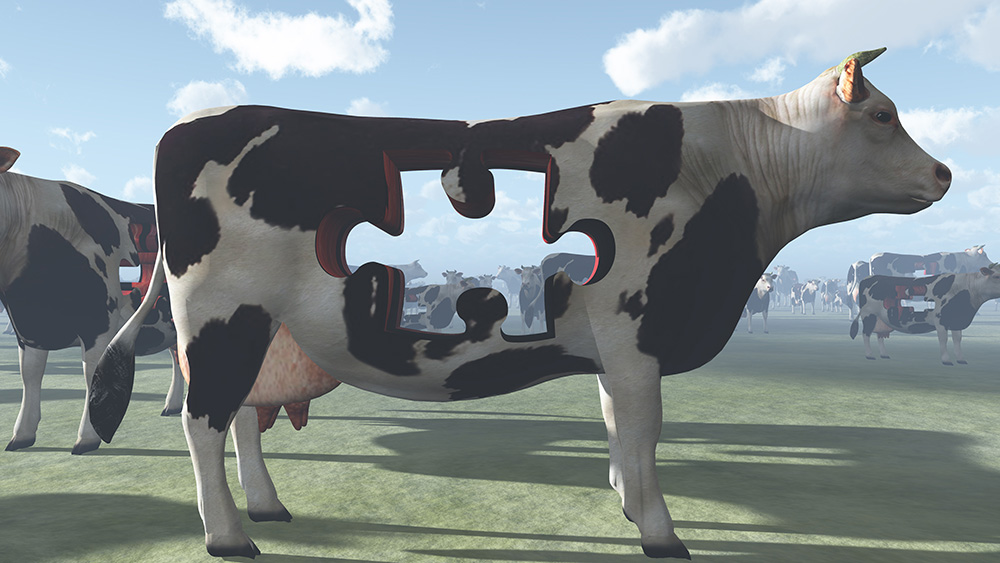 “There are cows in my room and they’re talking to me!”
“There are cows in my room and they’re talking to me!”
I recognized Uncle Lester’s voice and was surprised to hear it coming all the way from outside. Uncle Lester was usually soft spoken and didn’t talk much. He didn’t even talk about the war, although he fought in many of the same battles that Daddy had fought in.
I opened the front door and peeked outside. My two sisters stood one on each side of me. Uncle Lester was standing in the middle of the narrow street in front of our house.
“The cows are talking to me!” Uncle Lester called out again. His shoulders were slumped, and his long, baggy sleeves and shirttail fell loosely around his equally baggy brown pants. His pale face looked longer than ever, and I had to strain to understand the words coming from his pale lips.
Even at age five I knew from the look on Uncle Lester’s face that he was scared. “Momma, how did cows get into Uncle Lester’s room?” I asked. Mom shushed me as she gently shoved my two sisters and me back into the house.
I looked back just in time to see Uncle Lester struggling to stand up. Daddy was walking toward him. “Buck,” Uncle Lester was pleading with Daddy. “Get those cows out of my room. They’re talking to me.”
With a calm and steady stride Daddy continued to walk toward Uncle Lester. Daddy was shorter than Uncle Lester but much stronger looking, with thick black hair hanging beneath the edges of his baseball cap. I was starting to get worried about Daddy as I watched him walk. I hoped he didn’t get close to those talking cows. I saw him reach his arms outward toward Uncle Lester just before Momma closed the front door completely and blocked my view.
Back inside, my sisters and I sat together on a footstool and didn’t move. Josephine, who was four years my elder, picked up one of her schoolbooks to read while two-year-old Amy examined a tear in her slip that she was wearing as a dress. I sat and watched Momma peer through a window toward the street. Finally, Daddy came back into the house, the screen door slamming behind him. Everyone stiffened. After Daddy walked past me, I stood up to peer through the window, trying to catch sight of Uncle Lester, but I was too short to see if he was still there.
“He’s drunk again,” Mom stated matter-of-factly, leaning on the kitchen table with both hands. I didn’t know if she was talking to us kids or to Daddy.
“He took too much medicine,” Daddy answered in a harsh voice without looking in Mom’s direction. He lifted the dipper out of the water bucket on the side table and took a drink. Water spattered on the table when he dropped the dipper back into the bucket, but he didn’t wipe it up. The discussion ended abruptly, as usual. Mom rarely pushed disagreements very far.
I couldn’t get the thought out of my mind—there were cows in Uncle Lester’s room, and they were talking to him. I wanted to know what they said. I also wanted to know what room they were in. Uncle Lester slept on the sofa in our “other room” and kept his stuff in a dugout space in the dirt underneath our house.
Trying to be invisible, I tiptoed to the front door and opened it slightly. There was no one there. “What did the cows say to Uncle Lester?” I asked Momma.
“I hope they told him to straighten up and stop drinking,” she responded before telling me to close the door.
When Daddy took his cap off, thick black hair sprang outward as if happy to be free. “Lester took too much medicine and he’s confused. I told him to never take that medicine again. His nerves aren’t that bad. He just needs to get a grip.”
Daddy seemed deep in thought that evening during supper, and after he finished eating, he smoked lots of cigarettes. He told stories about battles Uncle Lester fought in. We all knew he was worried about Uncle Lester, so we didn’t bother him with questions. Uncle Lester was Daddy’s favorite brother, and Daddy worried about him a lot.
Addictions add new dimensions to “reality” for young children. Separating truth from fantasies can be a challenge, especially when hallucinations are more emotionally laden than normal life. To this day I have a respectful fear of cows and sometimes wonder if, indeed, they could have channeled a message to Uncle Lester.
Coping strategies can be helpful on a day-to-day basis, but in the long run they do not heal the real issue. Uncle Lester drank heavily. Dad talked about his trauma. Neither approach helped in the long run, however. In addition, in poverty, seeking help is often viewed as a weakness. Daddy refused to seek or accept compensation for his emotional state. He said people would think he was “crazy.” If someone close to you has experienced trauma or has other mental health needs, encourage them to seek help from community agencies or other professionals.








